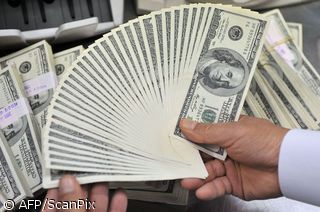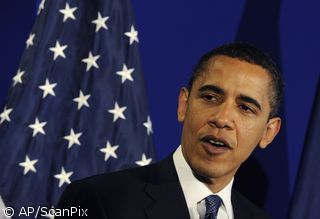For several years the position of Polish exporters on the markets of the former Commonwealth of Independent States has been clearly weakening
Published:
5 May 2003 y., Monday
In order to spur on trade, presentations of Polish exporters are gaining popularity. One such presentation is the Polish National Exhibition in St. Petersburg.
Geographic proximity, relatively small competition from local manufacturers who are not capable of satisfying the growing demand for modern products and, contrary to common belief, the increasingly wealthy and demanding customer, are the advantages of the "eastern market." Why then does trade with the countries of the Commonwealth of Independent States (CIS) constitute as little as 7.1 percent of the global value of Polish export?
The position of Polish companies is weakened by competition from the Western businesses that are perfectly aware of the perspectives which an active and strategically planned entry into Eastern markets can accomplish. Entrepreneurs from Germany, France and the United States, supported by the appropriate funds, first promote and then successfully sell their products in Russia and Ukraine or make direct investments there.
The decrease in the amount of Polish agriculture and food products exported to Eastern markets has stemmed from the fact that big international concerns such as Nestlé, Danone or Unilever directly entered this strategic area. However, the issue of Western competition is only a part of the answer to this question and the possibility of development for Polish exporters on the markets in the former Soviet Union.
One of the most serious difficulties Polish companies encounter is a considerable risk connected with signing commercial contacts with partners from the East who frequently appear to be insolvent and do not honor their contracts. According to Robert Stawski from the Promotion Chamber of the Polish Chamber of Commerce, businesspeople from Russia frequently do not understand the term "advance payment" and sometimes want to pay for the products only after they sell them. For obvious reasons, these terms are hard to accept for Polish manufacturers, which are mostly small and medium-sized companies. The state does not guarantee any protection for companies against situations in which partners from Russia, Belarus or Ukraine do not fulfill the terms of a commercial contract.
Šaltinis:
warsawvoice.pl
Copying, publishing, announcing any information from the News.lt portal without written permission of News.lt editorial office is prohibited.
The most popular articles
 Parex Bankas won the tender organised by UAB Investicijų ir Verslo Garantijos regarding the financing of very small, small and medium-sized enterprises, and is to lend LTL 100 million together with other three selected banks.
more »
Parex Bankas won the tender organised by UAB Investicijų ir Verslo Garantijos regarding the financing of very small, small and medium-sized enterprises, and is to lend LTL 100 million together with other three selected banks.
more »
 The European Commission has approved, under EC Treaty state aid rules, the €5 billion risk shield for German bank WestLB and accompanying measures, following an in-depth investigation opened in October 2008.
more »
The European Commission has approved, under EC Treaty state aid rules, the €5 billion risk shield for German bank WestLB and accompanying measures, following an in-depth investigation opened in October 2008.
more »
 MEPs have backed new rules to rebuild trust in Europe's battered banks through better financial supervision and risk management.
more »
MEPs have backed new rules to rebuild trust in Europe's battered banks through better financial supervision and risk management.
more »
 Taking into consideration the tendencies in the market, starting from 11 May this year AB Bank SNORAS will change the interest rates on time deposits in Litas, Euro, Great Britain pounds and USA dollars.
more »
Taking into consideration the tendencies in the market, starting from 11 May this year AB Bank SNORAS will change the interest rates on time deposits in Litas, Euro, Great Britain pounds and USA dollars.
more »
 Now VW and Porsche who are looking into a merger.
more »
Now VW and Porsche who are looking into a merger.
more »
 First European SME week supports small businesses and encourages entrepreneurship.
more »
First European SME week supports small businesses and encourages entrepreneurship.
more »
 Officials at an El Paso bank said $120,000 found at an ATM doesn't belong to the bank.
more »
Officials at an El Paso bank said $120,000 found at an ATM doesn't belong to the bank.
more »
 The placing on the market of seal products should not be allowed say MEPs. It is permitted only where the seal products result from hunts traditionally conducted by Inuit and other indigenous communities.
more »
The placing on the market of seal products should not be allowed say MEPs. It is permitted only where the seal products result from hunts traditionally conducted by Inuit and other indigenous communities.
more »
 President Barack Obama is calling on Congress to overhaul tax policies that he said reward companies for shifting U.S. jobs overseas and allow wealthy people to evade taxes using offshore accounts.
more »
President Barack Obama is calling on Congress to overhaul tax policies that he said reward companies for shifting U.S. jobs overseas and allow wealthy people to evade taxes using offshore accounts.
more »
 MEPs will discuss the protection of animals used for science Monday evening along with a proposal to ban the trade in seal products.
more »
MEPs will discuss the protection of animals used for science Monday evening along with a proposal to ban the trade in seal products.
more »